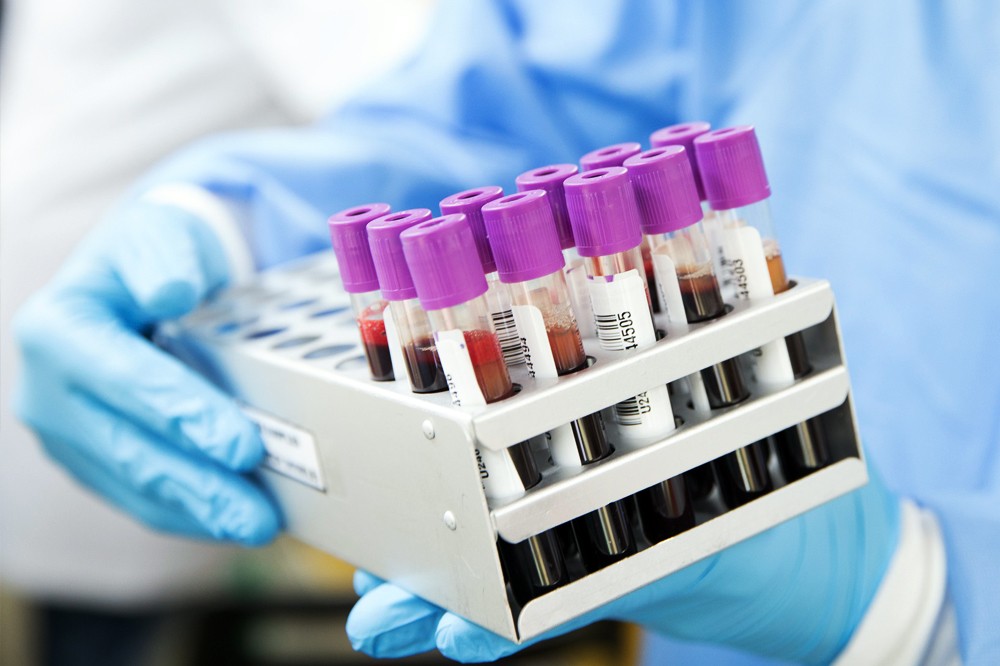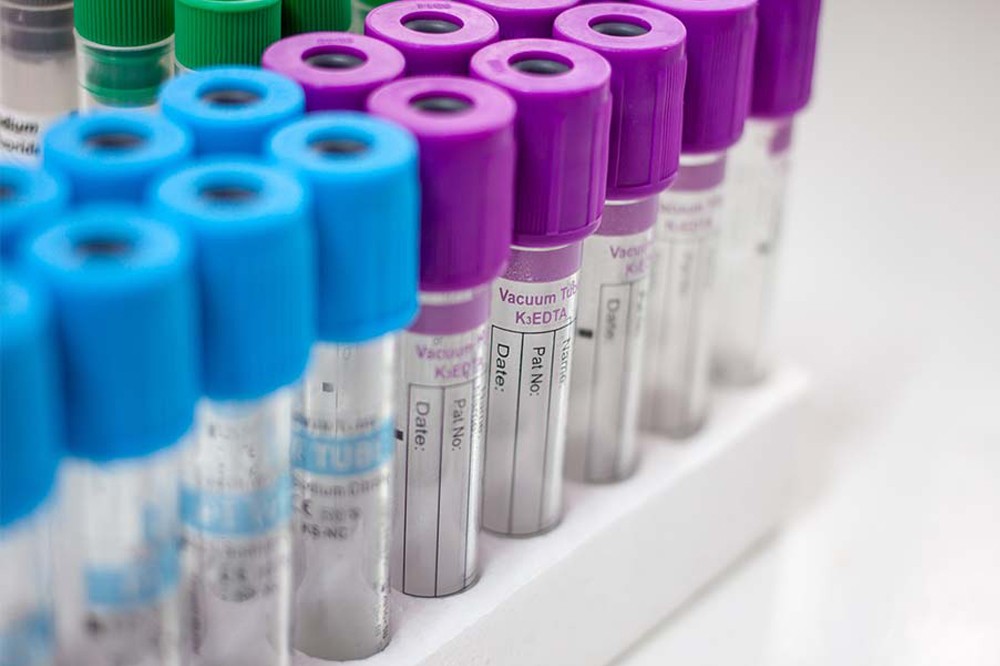Lab Testing for Common Co-occurring Medical Issues in Autism

All contents of this resource were created for informational purposes only and are not intended to be a substitute for professional advice, diagnosis, or treatment. Always seek the advice of your physician, therapist, or other qualified health providers with any questions or concerns you may have.
Lab testing is important because it helps doctors identify underlying medical issues as well as determine the best course for treatment. In this article, we will discuss lab testing:
- Where to start.
- What information it gives us.
- What to look for in results.
- Tests typically covered by insurance, including:
- Basic labs.
- Advanced lab testing: genetic abnormalities, mitochondrial dysfunction, seizures (EEG), and functional or structural abnormalities of the brain (MRIs).
- Lab work a functional medicine doctor may order.
With lab results in hand, you and your doctor can put together a treatment strategy for your child.
Where to Start
When testing your child for underlying medical issues, consider both mainstream and functional lab testing. They each provide valuable information to help guide treatment.
As you begin, please keep in mind that:
- The list of labs below is not comprehensive. Your child may need more or less lab work than is listed.
- Your child’s doctor can help you determine your child’s needs.
- The doctor or lab may not be able to collect specimens for all of the needed lab work in one visit.
- Your child’s doctor can determine what is priority and how to space out lab work.
- Identifying the cause of your child’s medical issues can take time, especially if they are complex. Therefore, your child’s doctor may:
- Determine a need for additional testing.
- Refer you to a specialist for more in-depth testing and/or care.
- While some labs only need to be ran once, others may to need to be repeated. Repeating labs can help your child’s doctor:
- Monitor progress.
- Determine if your child’s treatment plan needs to be adjusted in response to developmental changes.
- You will need copies of all lab results, so start a filing system to keep them organized.
- If you see a functional medicine doctor or a specialist, they will want to see results from all previous lab work.
- While one doctor may dismiss results as normal, another doctor may read them differently, applying new scientific guidelines.
Testing Typically Covered By Insurance

Basic Lab Testing
To begin, consider asking your child’s pediatrician to run basic labs that are typically covered by insurance. While it’s true your pediatrician may not be familiar with treating autism medically, they might be willing to order some labs to help get you started. If not, you can move on to a functional medicine doctor.
After you get a copy of the lab results, review them for anything that stands out. Make sure levels are where they should be, specifically checking for levels at the high and low end of ranges.
- Vitamin D
- Low Vitamin D causes immune dysfunction, depression, sleep problems and more
- Most functional medicine practitioners like this level to be 50-80
- Iron Panel Including Ferritin (Iron Storage)
- Low iron causes sleep problems, developmental delay, and pica
- Additionally, studies show that kids with autism have lower than normal iron levels
- Total Cholesterol
- Comprehensive Metabolic Panel
- This tells us how the body is using food and energy and also shows us liver function
- ESR and CRP
- These are inflammation markers
- Inflammation is linked to autism, and PANS & PANDAS
- CBC
- This measures several parts and features of the blood
- Thyroid
- Hypothyroidism causes developmental delay and attention problems.
- Be sure the test TSH, Free T3, Free T4, Reverse T3 and antibodies
- Zinc and Copper
- Low zinc (and high copper) is often found in kids with autism
- Low zinc causes picky eating and developmental delay
- Run copper and zinc together because they should balance (when one goes up, the other goes down)
- RAST
- This is IgE or “classic” allergy testing
- Allergies cause inflammation
- It helps to know what your body is reacting to
- Testing for Lead Exposure
- Lead exposure causes developmental delay
Advanced Lab Testing
These are second level tests that can be ordered if necessary. These sometimes become very important if your child is regressing or having troublesome behaviors and basic lab testing cannot uncover the reasons.
Genetic Testing
Recent studies tell us about 10% of kids with autism have related genetic abnormalities. Accordingly, your doctor may want to order some genetic testing look for any abnormalities.
- Microarray and karyotype is usually ordered by a geneticist
- It looks for genetic abnormalities
- Whole exome sequencing (WES) or Whole Genome Sequencing (WGS)
- This test is much more expensive and extensive, so be sure to have it approved by insurance first and be mindful of your budget.
- Pharmacogenetic testing
Metabolic Testing for Mitochondrial Dysfunction
Emerging science tells us that the majority of kids with autism have some level of mitochondrial dysfunction. Many of the symptoms of mitochondrial dysfunction mirror autism, including: developmental delay, regression, language/social impairment, anxiety, seizures, GI issues, and more.
Given the similarities between autism and mitochondrial disorder and the fact that this is treatable, it is important to consider evaluating your child for it.
Below is a list of labs your doctor can order to check for mitochondrial dysfunction. Please note: these are all mainstream lab tests and should be covered by insurance with proper coding.
- Plasma Lactate
- Look for elevated lactate
- Fasting Plasma Amino Acids
- Alanine >450
- Alanine / lysine > 2.5
- Elevated pyruvate
- Urine Organic Acids (Quantitative)
- Look for Abnormal urinary OAT: Elevated Krebs Cycle metabolites
- Fasting Plasma Acetylcarnitine Panel (Quantitative)
- Look for 3 or more elevations
- Free and Total Carnitine
- Look for low Carnitine (free and/or total)
- Plasma Ammonia
- Look for Elevated Ammonia (>40 ug/dl)
- Creatine Kinase
- Look for Elevated Creatine Kinase (>150 U/L)
- Baseline Levels of Cholesterol, CoQ10, Vitamin E, Vitamin D
- Look for low ubiquinone (CoQ10)
- Comprehensive Metabolic Panel
- Look for AST / ALT ratio greater than 2.0
- Complete Blood Count (CBC)
- Look for abnormalities
- Mitoswab
- This is a cheek swab that you may only be able to obtain through a functional medicine doctor
EEG (Electroencephalogram)
- An EEG tests for seizures by measuring the electrical activity in the brain.
- Usually ordered by a neurologist
- Many seizures go unnoticed because they occur during sleep
- A 24-48 hour EEG is ideal
- Usually ordered by a neurologist
MRI
Magnetic resonance imaging (MRI) scans produce detailed images of the brain. MRIs can help identify functional or structural abnormalities in the brain such as Chiari malformations.
- A neurologist usually orders an MRI
- Typically requires sedation for a child
- Anesthesia can cause regression in some kids, so please weigh risk verses benefit carefully
- Here is TACA’s article on anesthesia
Functional Medicine Lab Testing

A functional medicine doctor is a different type of doctor. They look at why the body is behaving the way it is and treat underlying causes. In order to do this, a functional medicine doctor may consider running some of the labs listed below. These are not always covered by insurance. Check with your practitioner and your health insurance company.
Urine Testing
- The OAT (Urinary Organic Acid Test) is a urine sample kit you send by mail to the lab.
- This test requires a practitioner’s signature.
- Test results will show some vitamin deficiencies, neurotransmitter levels, mitochondrial markers, gut health, and more.
- Mosaic Diagnostics (formerly Great Plains Lab) OAT is the one most practitioners use.
- Here are a few videos that explain how to read the test:
- Here are interpretive guides:
Testing for Vitamin and Nutrient Deficiency
- There are many functional medicine labs that do this.
- SpectraCell MicroNutrients is a blood sample that will tell you levels of vitamins, minerals, glutathione, and more in the actual cell, rather than in the blood.
- You can order the kit without a practitioner’s signature if needed.
Stool Testing for Pathogens, Gut Bacteria, and more
- You can test stool for the DNA of parasites, HPylori, candida and other organisms. It also tells you your susceptibility to antibiotics.
- GI-MAP and Doctor’s Data Comprehensive Stool Analysis are examples of a stool test.
Testing for Food Sensitivities (IgG)
- Food sensitivities can cause a delayed reaction to the food, so testing for them is different than testing food allergies.
- Regular allergists and doctors do not test for food sensitivities because the reliability of these tests is controversial.
- The ELISA food sensitivity test can be done without a practitioner.
- Tests a practitioner needs to order for you:
- US BioTek Laboratory is a panel that tests for 96 general foods (IgE and IgG).
- Cyrex also does excellent IgG food panels.
- Allettess also has panels to test for mold and chemical sensitivities.
- Remember that the best test for food sensitivities is an elimination diet.
Folate Receptor Autoantibodies Testing
- This test is called a FRAT (Folate Receptor Antibody Test).
- Can tell you if your child has binding or blocking antibodies that are preventing folate from entering the cell.
Testing for Mold Exposure
- These are urine test kits that you mail into the lab
- The MycoTox Profile by Great Plains Lab screens for 11 different mold species
- Requires a practitioner’s signature
- The MycoToxin urine test by Real Time Lab screens for 15 different mycotoxins
- Direct access to testing without a practitioner is state dependent
Testing for Metal Toxicity
- Blood Level Testing
- This will only show recent exposure before it moves into tissues.
- Hair Elements Test
- This test from HolisticHeal will help you understand what heavy metals the person is excreting and what minerals are deranged.
- It does not require a doctor to sign.
- This test from HolisticHeal will help you understand what heavy metals the person is excreting and what minerals are deranged.
- Urinary Porphyrins Test
- Specific urine porphyrin profiles are associated with high-level exposure to mercury, arsenic, lead and some chemicals and drugs.
- There are several companies that do this test.
- Doctor’s Data is one of them.
- This is a first morning’s urine test.
Conclusion
As you can see, there are many lab tests that can help your practitioner pinpoint underlying medical issues which can lead you to a targeted treatment plan. Lab work is a great way to get a better idea of what needs to be treated in order have success in healing.




